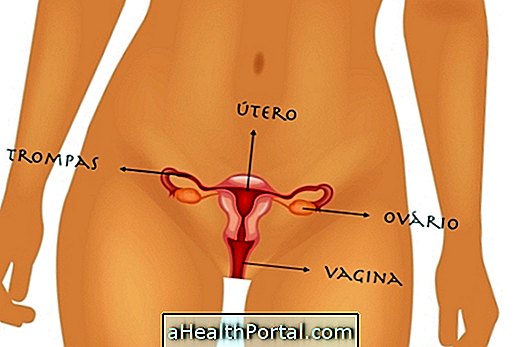It is very important to sleep because it is during sleep that the body recovers the energies, optimizes the metabolism and regulates the function of hormones that are fundamental for the functioning of the body, as is the case of growth hormone.
While we sleep, memory consolidation occurs, allowing for better learning and performance at school and at work. In addition, it is mainly during sleep that the tissues of the body are repaired, facilitating the healing of wounds, the recovery of the muscles and the strengthening of the immune system.
In this way, a good night's sleep is recommended to prevent serious illnesses such as anxiety, depression, Alzheimer's and premature aging. However, to achieve a regular sleep, it is advisable to adopt some habits like sleeping always at the same time, avoid leaving the TV on and maintaining a dark environment. Check out our tips on what to do to sleep well.

What happens if I do not sleep well?
Lack of adequate rest, especially when several nights of sleep are lost or when it is routine to sleep little, causes problems such as:
- Decreased memory and learning;
- Mood changes;
- Risk of developing psychiatric illnesses, such as depression and anxiety;
- Increased inflammation in the body;
- Increased risk of accidents due to decreased rapid reaction capacity;
- Delay growth and development of the body;
- Weakening of the immune system.
In addition, poor sleep is also linked to an increased risk of developing obesity, diabetes, high blood pressure and cancer. People who sleep less than 6 hours a day have almost a 5 times greater risk of having a stroke.

How long should sleep last?
It is not recommended to sleep less than 6 hours a day. However, the amount of adequate sleep per day varies from person to person due to several factors, and one of them is age, as shown in the following table:
| Age | Sleep time |
| 0 to 3 months | 2 to 5 pm |
| 4 to 11 months | 12 to 15 hours |
| 1 to 2 years | 11 to 14 hours |
| 3 to 5 years | 10 to 13 hours |
| 6 to 13 years | 9 to 11 o'clock |
| 14 to 17 years | 8 to 10 hours |
| 25 to 64 years | 7 to 9 hours |
| 65 years and over | 7 to 8 hours |
These hours of sleep are necessary to maintain physical and mental health, and it is important to remember that people suffering from chronic insomnia are at greater risk of having diseases linked to brain malfunction, such as dementia and memory loss. See 7 Tricks to improve memory effortlessly.
Because small naps are not enough
Taking small naps during the day, or sleeping a few hours at night, are not enough to maintain good health because sleep needs to go through 5 phases:
- Stage 1: lasts about 15 minutes and is characterized by the process of falling asleep, when the muscles begin to relax and the brain is not yet fully turned off;
- Phase 2: It is the phase of a lighter sleep, when the heart and respiratory rate decrease and the temperature of the body begins to descend;
- Stage 3: The body begins to go into deep sleep, the metabolism decreases and all organs function more slowly;
- Phase 4: is the deep sleep phase, when the body actually begins to replenish the energies, recover the health of cells and produce hormones linked to growth;
- REM phase : at this stage dreams occur and the brain retains important information received during the day and eliminates memory considered unnecessary.
So dreaming is an important indicator that memory is working well, and when a night's sleep is interrupted by half, the next night is likely to be troubled too, as the body can not properly follow the sleep stages.

Strategies for Better Sleep
For better sleep, you should avoid drinking coffee and consuming caffeine products after 5:00 p.m., such as green tea, cola and chocolate, as caffeine prevents signs of fatigue from reaching the brain, indicating that it is bedtime.
In addition, you should have a bedtime and rest routine, respecting work and rest times, and create a quiet and dark environment at bedtime, as this stimulates the production of the hormone melatonin, which is responsible for the arrival of sleep. In some cases of sleep disorders, it may be necessary to take melatonin capsules to help you sleep better. Here's how to use it: Melatonin.





















